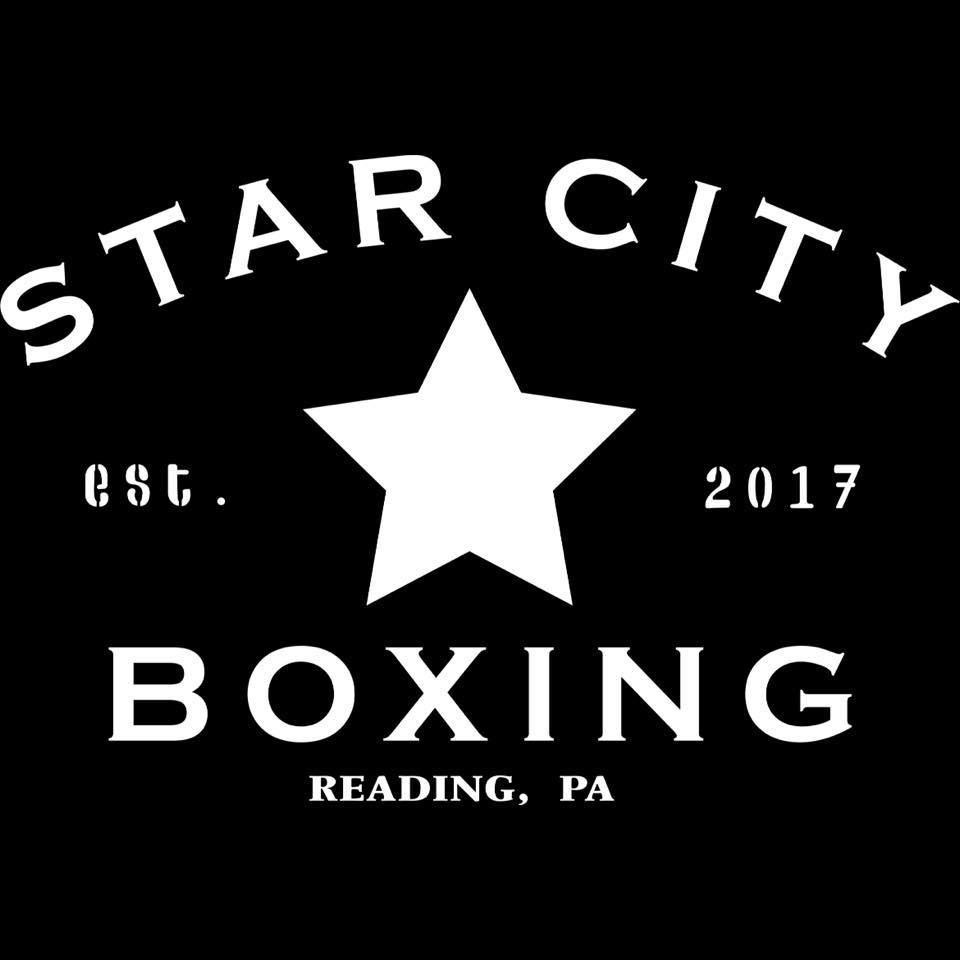Introduction
Joseph Fromuth, Penn State Berks
During the Spring 2022 semester, myself and six other students participated in a community storytelling project for a Special Topics course, Storytelling for Justice (ENG 297/497). For this project, we observed and interviewed coaches, staff, and gym members at Star City Boxing, a nonprofit gym in northwestern Reading, Pennsylvania. While students in ENG 297 wrote and edited stories based on their participant interviews, those in ENG 497 also filmed and edited two short videos, which were shown at Star City Boxing and at “Breaking Barriers, Building Bridges,” a collaborative event at Penn State Berks in association with Reading Senior High School, community organizations and select artists from the Reading area, and Jobany Bedoya of Red Tie Affairs.
Reading, once a thriving industrial city, has a more recent reputation for gun violence and poverty. In 2011, Reading gained national attention when the New York Times observed that Reading was the poorest city in the United States with at least 65,000 residents. Further, as several scholars have demonstrated, Latinas/os/x are often scapegoated in northeastern cities as the instigators of urban disorder and violence (Chavez; Hinshaw; Reisinger) These viewpoints, however, belittle and deny their positive contributions to the changing community.
The collected narratives in this book form a counterstory, a story that seeks to challenge the dominant narrative of an underrepresented group from group members’ perspectives (Solórzano and Yosso 32). During our observations, the interviewees gave us a different picture not only of Reading’s youth, but also of how boxing affects their lives. They were hardworking people, helping each other to reach whatever goals they aspired to achieve. Some gym members train for national and regional competitions, while others want a dynamic way of getting in shape. Whatever the reason, they are all here to lift each other up, finding ways to keep gym members off the streets.
In class, we read an article by researchers Diane and Lucas Ketelle regarding their observation of an up-and-coming boxer: “[W]hat seems most interesting about our time with Ricky was that we were paying attention to him and he was paying attention to us and that... allowed Ricky to engage us in what matters to him, and that is... movement [and] action.” (Ketelle and Ketelle, para. 60). Now that I have interviewed and collaborated with Shakeem and Henry to write their stories, I understand that projects such as this give interviewers and participants the opportunity to gain insights into each other's perspectives that contribute to a better understanding of participants’ lives. We met a community that knew what it meant to work hard to build better neighborhoods. They showed us that boxing goes beyond combat by teaching skills that will carry young people into their adult lives.
I would like to express my thanks to Dr. Grobman for giving me the opportunity to work on this book. Coaches Shakeem Hodge and Henry Calvo, whom I interviewed, gave me valuable insights into the role of mentors in young people’s lives. Finally, I would like to thank the Betances family for their continued work at Star City Boxing and for partnering with Penn State Berks for our storytelling project.
References
Chavez, Leo. The Latino Threat: Constructing Immigrants, Citizens, and the Nation, 2nd ed. Stanford University Press, 2013.
Hinshaw, John. “Dutchirican: The Growing Puerto Rican Presence in the Pennsylvania Dutch Country.” The Pennsylvania Magazine of History and Biography, vol. 140, no. 3, 2016, pp. 365-392.
Ketelle, Diane, and Lucas Ketelle. “Behind the (T)Rope: One Boxer's Story.” Forum Qualitative Sozialforschung / Forum: Qualitative Social Research, vol. 16, no. 3, 26 Aug. 2015. www.qualitative-research.net/index.php/fqs/article/view/2338/3879.
Reisinger, Mark. “Latino Migration Flows and Settlement Patterns for Berks County and Reading, PA.” 20 Oct. 2011, Albright College, Reading, PA. Lecture.
Solórzano, Daniel G., and Tara J. Yosso. “Critical Race Methodology: Counter-Storytelling as an Analytical Framework for Education Research.” Qualitative Inquiry, vol. 8, no. 1, 2002, pp. 23-44.

